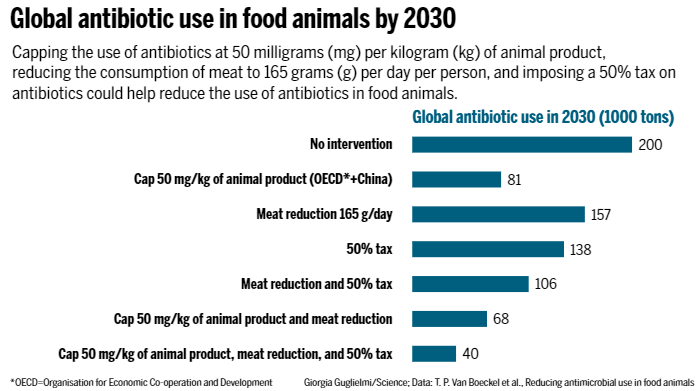Almost 80% of all antibiotics in the United States aren’t taken by people. They’re given to cows, pigs, and chickens to make them grow more quickly or as a cheap alternative to keeping them healthy. These drugs could give rise to superbugs—bacteria that can’t be treated with modern medicine—and things are only getting worse. In 2013, more than 131,000 tons of antibiotics were used in food animals worldwide; by 2030, it will be more than 200,000 tons.
In a paper published today in Science, epidemiologist Thomas Van Boeckel of the Swiss Federal Institute of Technology in Zurich and colleagues outline the growing threat—and what can be done about it. Boeckel spoke to us about his team’s work.
…
Q: What are the threats posed by the overuse of antibiotics in food animals?
A: Most antibiotics are used either to prevent disease or to promote growth, and this means exposing healthy animals to antibiotics over long periods of time. If the bacteria that colonize these animals acquire [antibiotic] resistance genes, treatment becomes ineffective: That’s a threat for the livestock sector because you can’t keep your animals healthy.
…
Q: [What] do you think is the most effective way to reduce global antibiotic consumption?
A: There’s no silver bullet against it, and our solutions are not mutually exclusive. If the three measures were combined and fully implemented, we could reduce the antibiotic consumption up to 80%.
The GLP aggregated and excerpted this article to reflect the diversity of news, opinion and analysis. Read full, original post: Are antibiotics turning livestock into superbug factories?
































